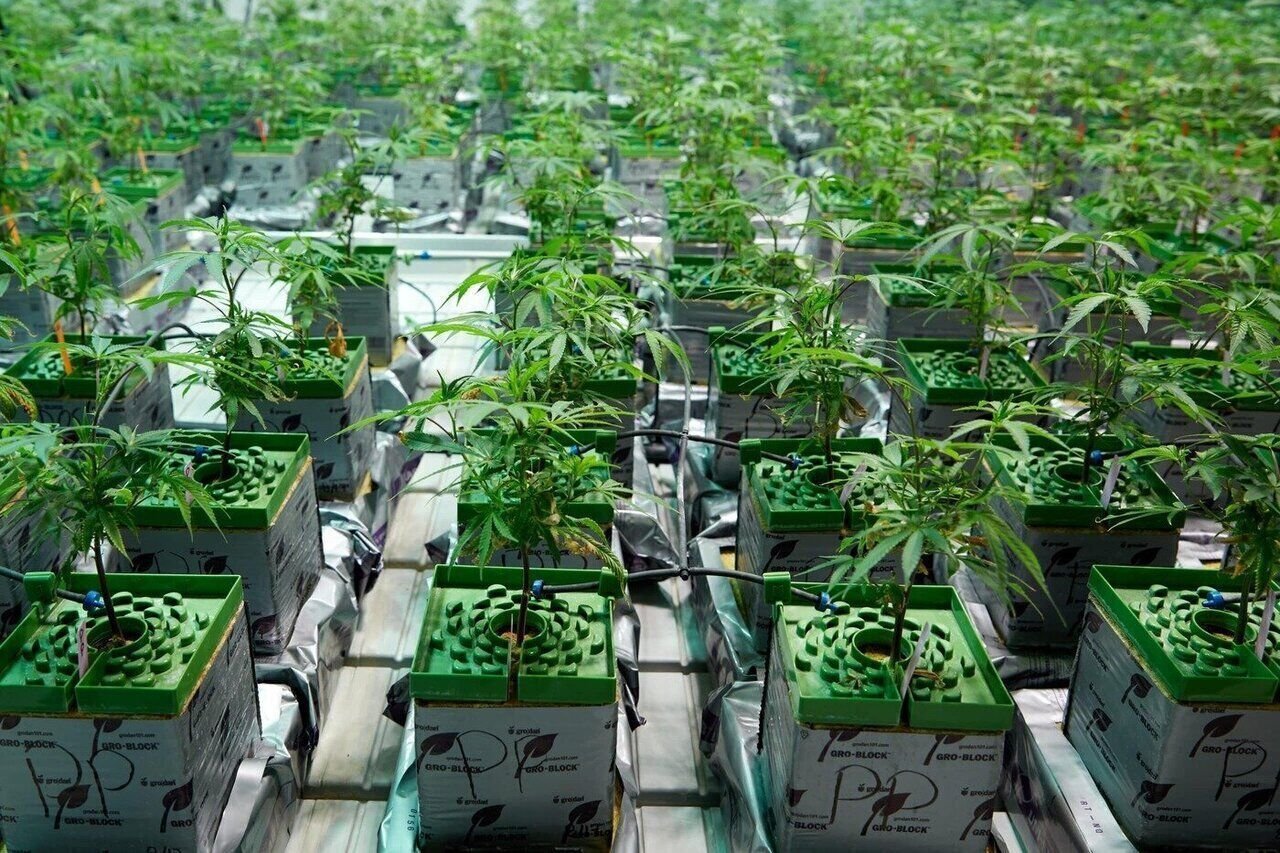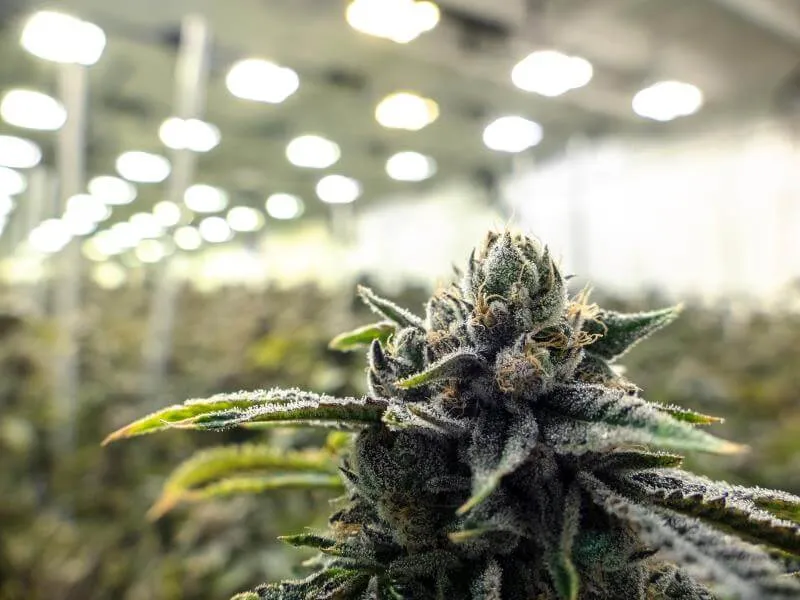The Benefits of Using Hydroponics for Cannabis Cultivation
LOS ANGELES–Hydroponics, the practice of growing plants in a water-based, nutrient-rich solution rather than soil, has become increasingly popular among cannabis cultivators. This method offers several advantages, particularly when it comes to optimizing growth, enhancing yields, and improving the overall quality of cannabis plants. In this article, we’ll explore the key benefits of using hydroponics for cannabis cultivation and why it’s a game-changer for growers looking to take their crops to the next level.
1. Faster Growth and Higher Yields
One of the primary reasons cannabis growers turn to hydroponics is its ability to accelerate plant growth. Since hydroponic systems deliver nutrients directly to the plant’s roots in a water-soluble form, cannabis plants can absorb nutrients more efficiently than they can from soil. This efficient nutrient uptake results in faster growth cycles, allowing cultivators to harvest more frequently.
Additionally, hydroponic systems often lead to higher yields. Plants grown hydroponically tend to be more robust and healthy, thanks to the precise control over water and nutrient delivery. This results in larger, denser buds and overall better yields compared to traditional soil-based cultivation.
2. Precise Control Over Nutrients
Hydroponic systems allow for precise control over the nutrients that cannabis plants receive. With soil-based growing, nutrients are limited by the quality and composition of the soil, and it’s difficult to ensure the plant is getting exactly what it needs. In contrast, hydroponics provides a tailored nutrient solution that can be adjusted to meet the specific needs of cannabis plants at different growth stages, from seedling to flowering.
Cannabis plants are particularly sensitive to nutrient imbalances, and hydroponics allows growers to optimize the nutrient profile to promote strong root development, healthy vegetation, and abundant bud production. By fine-tuning nutrient levels, pH, and water quality, hydroponic growers can maximize their plant’s genetic potential and achieve higher-quality yields.
3. Water Efficiency
Watering can be one of the most resource-intensive aspects of cannabis cultivation, especially in areas facing water scarcity. Hydroponic systems are significantly more water-efficient than traditional soil-based methods. Because water is recirculated in most hydroponic systems, only a minimal amount is lost to evaporation or runoff. This closed-loop system ensures that water is used more efficiently, reducing waste and conserving precious resources.
Moreover, because the nutrient solution is continually recycled, hydroponic systems allow growers to monitor and control the quality of the water used. This ensures plants are never overwatered or subjected to contaminated water, which can cause nutrient deficiencies or plant stress.
4. Space Efficiency and Increased Density
Hydroponics enables growers to maximize the use of available space, which is particularly beneficial for indoor cannabis cultivation. Since hydroponic systems don’t require large amounts of soil, they take up less space, allowing for higher plant density and more efficient use of grow space. Vertical hydroponic farming systems, for example, allow growers to stack multiple layers of plants, significantly increasing the number of cannabis plants in a given area.
This space efficiency makes hydroponics ideal for both small-scale indoor operations and large-scale commercial grow rooms. In some cases, hydroponic systems can increase plant density by up to 50% compared to traditional soil cultivation, leading to more frequent harvests and greater overall productivity.
5. Reduced Risk of Pests and Diseases
Soil-based growing is often prone to pest infestations and soil-borne diseases, which can be difficult to manage and can harm plant health. Hydroponics, however, reduces this risk. Since hydroponic systems use a soilless medium (like clay pellets, perlite, or rock wool), there are fewer breeding grounds for pests such as aphids, mites, and root rot-causing fungi.
Additionally, hydroponic systems allow for better environmental control. By maintaining optimal humidity, temperature, and airflow, growers can create an environment where pests and diseases are less likely to thrive. This means less reliance on chemical pesticides, which can compromise the quality of the final product and the health of consumers.

6. Reduced Environmental Impact
Hydroponics offers a more sustainable and environmentally friendly way to grow cannabis. By using less water, reducing the need for pesticides, and often relying on renewable energy sources to power indoor grow rooms, hydroponic systems can significantly reduce the environmental footprint of cannabis cultivation. Indoor hydroponic farms can also be set up in urban areas, reducing the need for long transport distances and contributing to local food and product production.
Moreover, many hydroponic growers utilize organic nutrient solutions and practice sustainable growing methods, further minimizing their impact on the environment. With the global push for more sustainable agricultural practices, hydroponics presents a promising solution for eco-conscious cannabis producers.
7. Optimal Growing Conditions Year-Round
One of the biggest challenges of traditional soil-based cannabis cultivation is dealing with unpredictable weather patterns and seasonal variations. Hydroponics, however, allows for complete control over the growing environment. Growers can regulate light, temperature, humidity, and CO2 levels, ensuring optimal conditions for plant growth year-round.
Whether you’re cultivating cannabis in a cold climate or an area with erratic weather patterns, hydroponics enables growers to produce consistent, high-quality cannabis no matter the season. This flexibility is particularly valuable for commercial growers looking to meet demand consistently.
8. Better Quality and Potency
Hydroponically grown cannabis often exhibits higher quality and potency compared to soil-grown plants. This is because hydroponic systems allow for precise control over the growing conditions, including nutrient levels, pH, and light intensity. This results in healthier plants with stronger roots, denser buds, and more potent THC and cannabinoid concentrations.
Since hydroponics allows for more efficient nutrient uptake and environmental control, plants tend to be more vigorous and have a higher resistance to stress. The result is cannabis with better flavor, aroma, and therapeutic effects, which can be important for both recreational and medical users.
Final Thoughts
Hydroponics offers a wide range of benefits for cannabis cultivation, from faster growth and higher yields to more efficient use of water and space. The ability to precisely control nutrients, reduce pests and diseases, and create optimal growing conditions year-round makes hydroponics an attractive option for both hobbyist and commercial growers. As the cannabis industry continues to grow, hydroponics is set to play a key role in meeting demand while also promoting more sustainable and environmentally friendly cultivation practices.
If you’re looking to maximize the potential of your cannabis crops and optimize your commercial grow, Advanced Nutrients is here to support your hydroponic journey. With years of expertise and a full range of hydroponic nutrients and additives tailored to cannabis, our team can help you achieve consistent, high-quality results. Reach out to Advanced Nutrients today for expert guidance, product recommendations, and the tools you need to elevate your hydroponic cannabis cultivation to new heights.


































